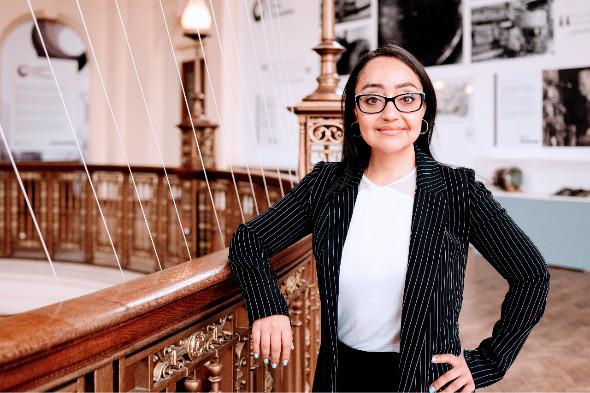
The Research Centre for Justice and Society at the Institute of Criminology, University of Cambridge is pleased to invite you to a discussion on Dr Silvana Tapia Tapia’s book, Feminism, Violence Against Women, and Law Reform: Decolonial Lessons from Ecuador (Routledge 2022). The event is scheduled from 1pm on Friday, 31 March 2023. It will take place in room B3 at the Institute of Criminology (CB3 9DA), and virtually. We will serve coffee from 12:45pm.
If you would like to attend, please register using the forms for in person or Zoom attendance. Since we have limited capacity, we request that you cancel your booking if you register but are no longer able to attend. If you would like to ask us anything about the accessibility of the venue or event, you can email reception@crim.cam.ac.uk.
About the book
Offering an important addition to existing critiques of governance feminism and carceral expansion based mainly on experiences from the Global North, this book critically addresses feminist law reform on violence against women, from a decolonial perspective.
Challenging the consensus that penal expansion is mainly associated with the co-option of feminist campaigns to counteract violence against women in the context of neoliberal globalisation, this book shows that long-standing colonial narratives underlie many of today’s dominant legal discourses justifying criminalisation, even in countries whose governments have called themselves “leftist” and “post-neoliberal”. Mapping the history of law reform on violence against women in Ecuador, the book reveals how the conciliation between feminist campaigns and criminalisation strategies takes place through liberal legality, the language of human rights, and the discourse of constitutional guarantees, across the political spectrum. Whilst human rights make violence against women intelligible in mainstream legal terms, the book shows that the emergence of a “rights-based penality” produces a benign, formally innocuous criminal law, which can be presented as progressive, but in practice reproduces colonial and postcolonial paradigms that limit and reshape feminist demands. The book raises new questions on the complex social and political factors that impact on feminist law reform projects, as it demonstrates how colonial assumptions about gender, race, class, and the family remain embedded in liberal criminal law.
This theoretically and empirically informed analysis makes an innovative contribution to feminist legal theory, postcolonial studies, and criminal law; and will be of interest to activists, scholars, and policymakers working at the intersections between gender equality, law, and violence in Latin America and beyond
About the speaker
Silvana Tapia Tapia is Leverhulme Fellow at Birmingham Law School and Assistant Professor of Law at Universidad del Azuay (Ecuador). Her current project explores the responses of anti-carceral and feminist organisers and activists, to the increased push, from international human rights entities, to expand penality as a response to violence against women.
